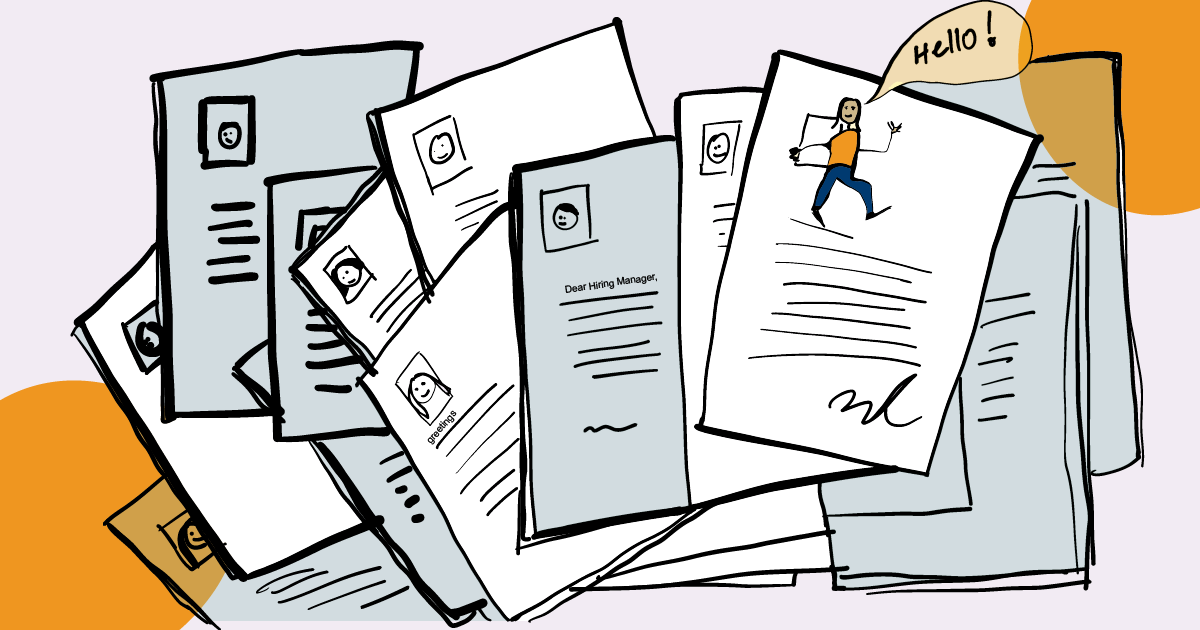
Written by Mariah Mills, Edited by ChatGPT for “grammar, clarity, and friendly tone,” Edited by Mariah Mills to reduce flowery verbosity. Edited by Grammarly for whatever it is that motivates Grammarly. Grammar, I guess? Edited by Grammar Check in Microsoft Word, which sometimes disagrees with Grammarly, and neither of them has any sense of humor. Edited by Becky Scheel, who edits all the Harmonic blogs to ensure blogworthiness, and who does have a sense of humor.
This winter, I have been working with the team that selects interns for our summer intern program. Over a few days, I read about a hundred cover letters and responses to writing prompts on our application.
Somewhere in the middle of this process, a realization struck me—I grew tired of repeatedly encountering the same sentences. Phrases like “my aim aligns perfectly with Harmonic’s mission to work on end-to-end design processes to create user-friendly experiences for all stakeholders” were ubiquitous. While these sentences somewhat accurately described service design, they were so saturated with formal language, superlatives, and jargon that they lost their meaning. The consistent repetition of terms like “my aim,” “aligns,” “resonates,” and “impacting all stakeholders” led me to believe that some individuals were phoning it in, possibly using ChatGPT to compose identical cover letters, leaving me with no sense of who they truly are or what they bring to the table.
However, amidst the sea of similar applications, some cover letters stood out as truly unique. These were well-crafted, effectively communicating how a person’s background and experiences positioned them for a career in service design and how this opportunity aligned with their career path (things I advocate for in my blog “How to Craft your Career Story by Design”). Some of these compelling letters came from candidates who were either very fresh in their career, or had been primarily focused on other fields until now, individuals who may be underdogs in some ways, and whose applications needed a good story to stand out. And stand out they did! When our review team gathered to discuss candidates, I raised my concerns about the repetitive language and potential use of ChatGPT, prompting a colleague to suggest running the writing through an AI detector. To my dismay, the formal, jargon-filled letters were mostly diagnosed as human-generated, while the beautiful, specific, and clearly written human stories were 100% AI-generated. I immediately felt a sense of betrayal, but as I pondered further, I questioned who I felt betrayed by.
Was it the individuals who used AI to craft something I genuinely enjoyed reading, possibly by including personal details in their prompt? It seemed unfair to fault them. Perhaps it was a sense of betrayal by a world that had conditioned people (including myself in my post-grad school days) to compose phrases like “my aim to ___ uniquely positions me to ___(insert jargon here).” A language that feels formal, impersonal, and generic. Or was it a betrayal by my own bias that technology shouldn’t be able to create something that resonates with my human spirit more effectively than individuals who find meaning in design and deeply desire opportunities like this?
In the end, I couldn’t hold either issue against an applicant. As a team, we took a holistic approach, examining resumes, statements, and portfolios to understand the applicants’ work and interests. We paid special attention to what they expressed about their desire to learn – a key quality shared by all Harmonic employees. While it can be challenging to witness the world around you changing, even for early adopters, I was reminded that sometimes a feeling of discomfort is a sign to pause and open up to new possibilities. This experience became a valuable lesson, prompting me to be more open to using AI tools and embracing this change. I tried something new today: I created a ChatGPT account and had it edit this blog! If the tools can benefit us and if we try to be transparent about their use, maybe there is a place for them.
Post-script: Applying for jobs and internships is hard enough. Everyone deserves a little grace.
OpenAI. (2024). ChatGPT (3.5) [Large language model]. https://chat.openai.com